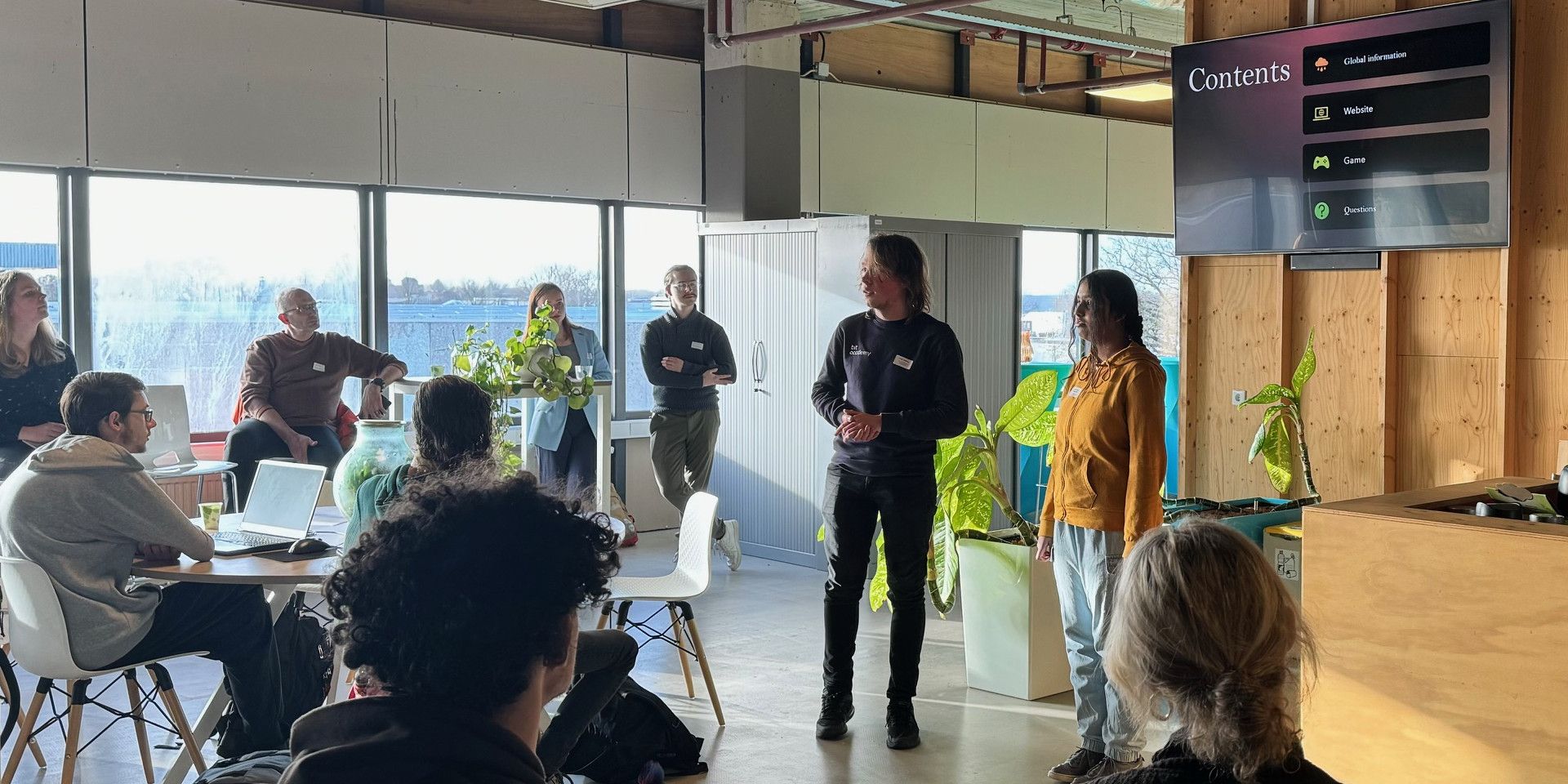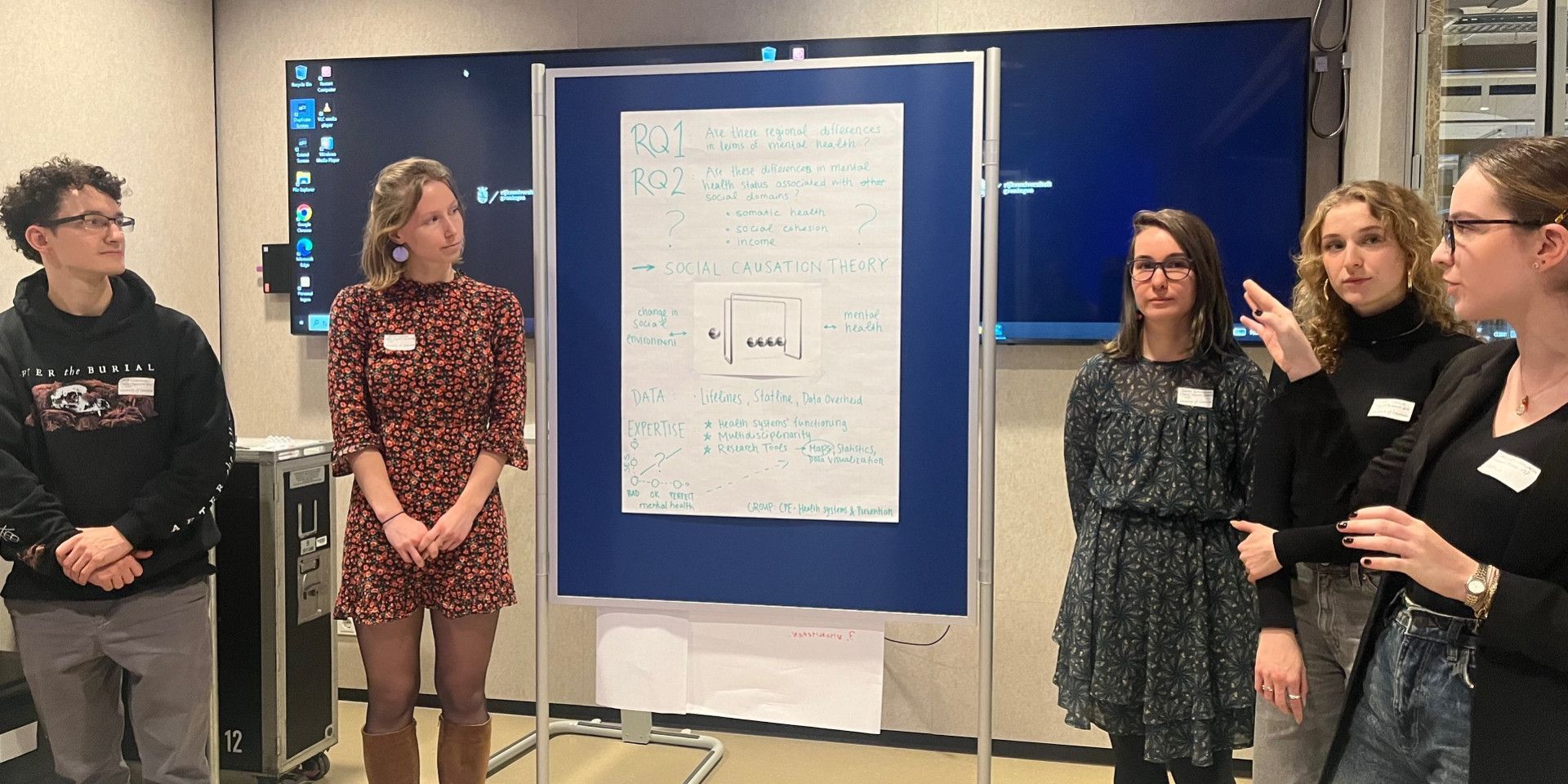
How might we improve the mental health of citizens in the Northern Netherlands?
In 2023, the third edition of the Aletta Regional Year Challenge started. The theme for this edition was: “How might we improve the mental health of citizens in the Northern Netherlands?”
Students who were working on research questions or challenges that match with this theme were invited to participate. The participants in the challenge had access to the Lifelines real-world dataset and use the data to underpin or enrich their research. To support their endeavours, #ARYC2023 organized workshops and events where participants inspired each other and share their findings and results. The results included tools, research, visualization, advice, innovation, and other (creative) solutions.

For the kick-off a presentation was given by the GGD Drenthe, who showed their tool developed by the “Werkplaats Mentale Gezondheid” which provides insight on mental health per region. During the return session, where students were invited to demonstrate their results so far, the foundation “Door het Geluid” gave a presentation about mental health for young people. The foundation is committed to breaking the barrier to discuss mental health problems experienced by young people and to remove the taboo on this topic.
During this year, students visited each other’s educational institution to learn more about their approaches to tackling the challenges. This helped to broaden their horizon on different approaches to a multi-disciplinary issue and promoted group work skills and idea generation.


Results from the project groups:
- Quantitative study, titled: “Sociodemographical Inequalities in Mental Health & Associations with Adversities in Other Social Domains” (Rijksuniversiteit Groningen, Health Systems and Prevention)
- Quantitative study, titled: “The influence of microbiome composition on mental health” (Hanzehogeschool Groningen, Honours college)
- Game development, titled: “How can a game be designed to evoke the experience of mental stress with the goal of increasing awareness about daily stressful situations?” (Noorderpoort)
- Web and game development, titled: “Serene Minds”, creating awareness on mental health and providing positive reinforcement (Noorderpoort)
- Redesigning the Lifelines interactive map (Noorderpoort)
- App development, titled: “Magely”, providing support for motivation and strategies to decrease procrastination
- App and survey development, titled: “Bist Goud?”, providing a platform for young people to seek help when having mental health problems
- Study on score the relationship between Neighborhood Socioeconomic Status (NSES) scores and other health and lifestyle
variables in order to identify significant trends that could inform public health strategies and interventions.

